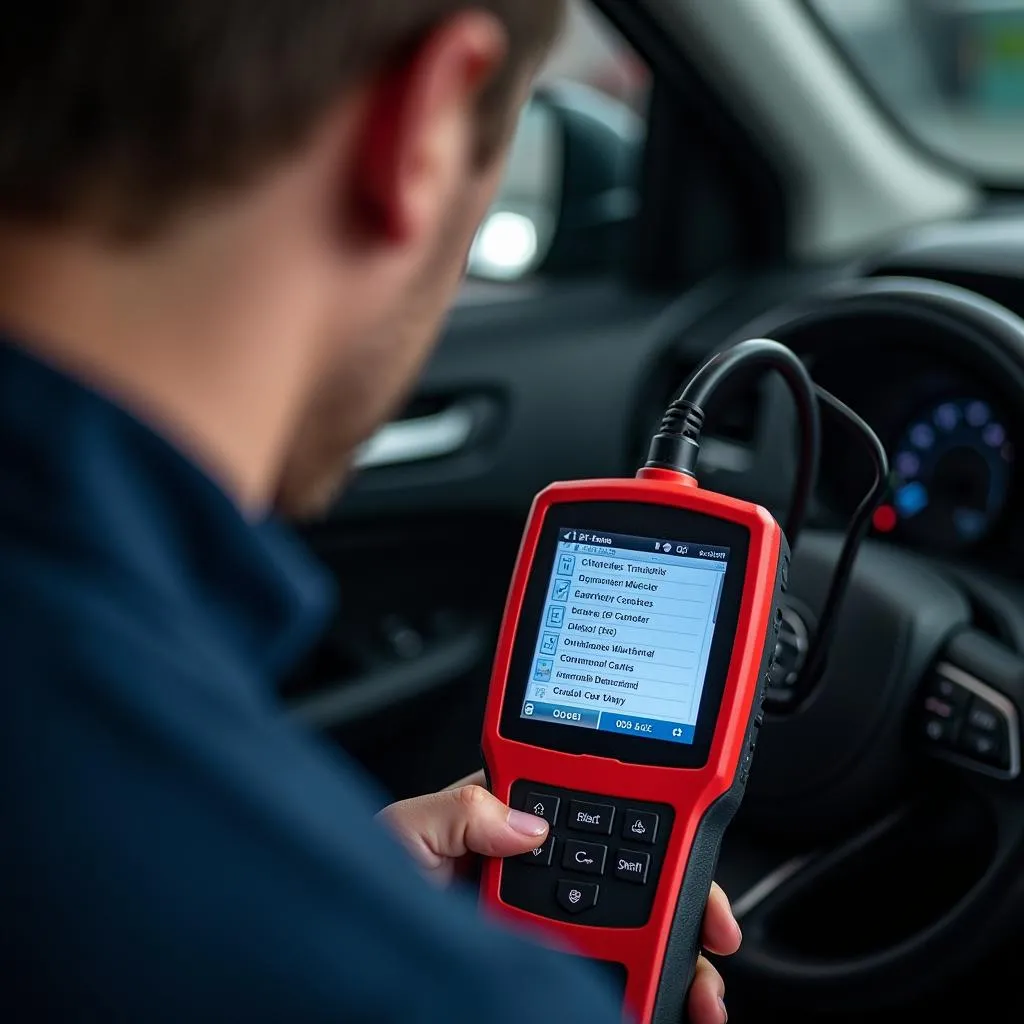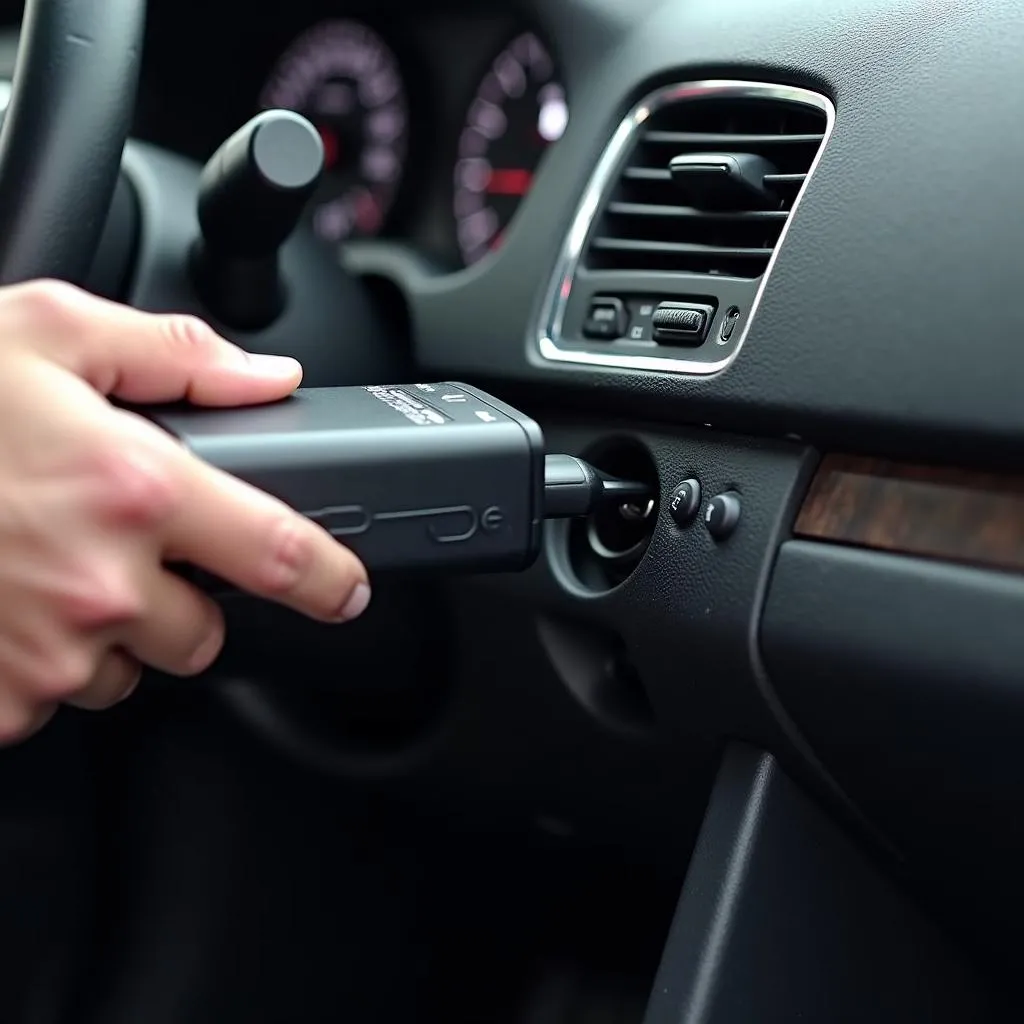Ever walked into a room full of mechanics and felt completely lost in the sea of technical terms they’re throwing around? We’ve all been there. One minute they’re talking about “oxygen sensors” and the next it’s all “ECM” this and “CAN bus” that. It can feel like learning a whole new language! Today, we’re tackling a phrase that might have you scratching your head: “Tag Names For Cars.” What are they, and why should you care? Buckle up, because we’re about to demystify this automotive jargon.
Decoding the Mystery: What Exactly are “Tag Names” in Cars?
The term “tag names” itself can be a bit misleading when it comes to cars. In the world of websites and coding, “tags” are used to label and organize content. But in the automotive world, it’s a different story. There isn’t a specific, standardized list of “tag names” assigned to car parts like there is for, say, VIN codes.
So, What’s the Confusion About?
Here’s where things get interesting. “Tag names” in the context of cars likely refers to a few different possibilities:
- Diagnostic Trouble Codes (DTCs): These are the alphanumeric codes that your car’s computer (the Engine Control Unit or ECU) stores when it detects a problem. Think of them like your car’s version of “check engine” lights, but way more specific. Each code corresponds to a particular issue, helping mechanics pinpoint the source of the problem. For instance, a code like “P0420” might indicate a problem with the catalytic converter.
- Parameter IDs (PIDs): These are specific data points that diagnostic scanners can access within your car’s computer system. They provide real-time information about various systems, like engine speed, coolant temperature, or oxygen sensor readings. Think of PIDs as the language your car’s computer uses to communicate with diagnostic tools.
- Module Names: Modern cars are essentially computers on wheels, with multiple electronic control units (ECUs) managing everything from the engine and transmission to the airbags and infotainment system. Each module has a name, often abbreviated, that identifies it on a diagnostic scanner. For example, the “PCM” refers to the Powertrain Control Module.
 Car Diagnostic Scanner Reading DTC Codes
Car Diagnostic Scanner Reading DTC Codes
Why Should You Care About These “Tag Names?”
Understanding what these “tag names” (DTCs, PIDs, Module Names) represent can empower you as a car owner.
- Speaking the Mechanic’s Language: Knowing the basics helps you communicate more effectively with your mechanic. You’ll have a better grasp of the issue at hand and can ask more informed questions.
- DIY Diagnostics: For the technically inclined, learning to use a basic OBD-II scanner and understanding common DTCs can help you diagnose simple car problems yourself.
- Avoiding Unnecessary Repairs: Sometimes a “check engine” light might be triggered by something minor. Understanding the code can help you determine if it’s a critical issue requiring immediate attention or something you can address later.
Common Scenarios Where “Tag Names” Come into Play
Imagine this: You’re driving down the Pacific Coast Highway, windows down, enjoying the California sunshine, when suddenly – bam! – the dreaded “check engine” light pops up on your dashboard. Instead of panicking, you pull over, grab your handy OBD-II scanner (yes, you’re that prepared!), and plug it into your car’s diagnostic port. The scanner displays a code: “P0302.”
Knowing that this DTC translates to “Cylinder 2 Misfire Detected” gives you a starting point. You now know it’s an engine-related issue likely affecting one of your cylinders. This knowledge allows you to communicate the problem accurately to a mechanic or research potential causes and DIY solutions.
 Mechanic Connecting OBD2 Scanner to Car Dashboard
Mechanic Connecting OBD2 Scanner to Car Dashboard
Beyond Codes: The Importance of Context
While these “tag names” are essential clues, remember that they are just a starting point for diagnosis. Factors like driving conditions, maintenance history, and even the make and model of your car play a role in accurate diagnosis and repair.
For instance, that “P0420” code we mentioned earlier often indicates a catalytic converter issue. However, a mechanic, like renowned automotive expert Dr. Sarah Chen from the Automotive Research Institute of America, would tell you that in some cases, a faulty oxygen sensor could also trigger this code. This is where a mechanic’s expertise comes in, using their knowledge and experience to interpret the codes within the broader context of your car’s specific situation.
Navigating the World of “Tag Names” and Car Repairs
The world of car diagnostics might seem daunting at first, but arming yourself with a bit of knowledge goes a long way. Remember, those “tag names,” whether they’re DTCs, PIDs, or Module names, are simply tools to help you understand your car better.
Have questions about specific codes or car issues? Check out our other articles on car maintenance and repairs, or visit one of our recommended car repair shops in your area:
And remember, if you need expert assistance with your car’s diagnostics or repairs, don’t hesitate to contact us on WhatsApp at +84767531508. Our team of automotive experts is available 24/7 to help you get back on the road with confidence!
